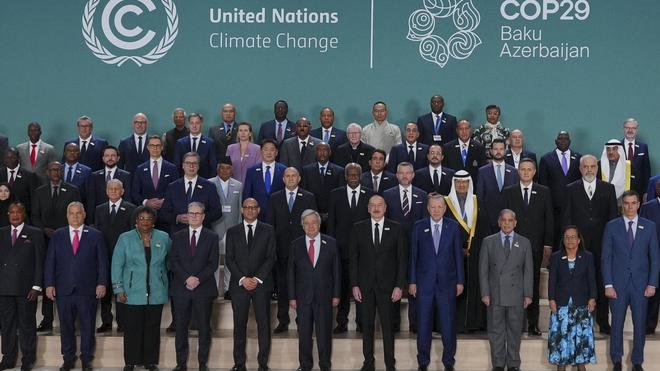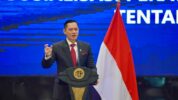Indonesia Calls for Global Solidarity and Climate Action at COP29
BAKU, RAKYAR NEWS – At the 29th United Nations Climate Change Conference (COP29) in Baku, Azerbaijan, Indonesia’s Parliament urged for a collective and equitable approach to addressing the challenges posed by climate change.
The call was made during the Parliamentary Meeting organized by the Inter-Parliamentary Union (IPU), highlighting the urgency of action in tackling the global climate crisis.
Ravindra Airlangga, Deputy Chair of the Inter-Parliamentary Cooperation Body (BKSAP) of Indonesia’s House of Representatives (DPR RI), emphasized that innovative strategies are crucial for accelerating the transition to sustainability.
He stressed that developed nations must shoulder a proportional responsibility in addressing the climate crisis, especially given the disproportionate impact on developing countries. “Shared responsibility must be accompanied by proportional contributions,” he stated.
Airlangga’s remarks were delivered during the session titled “Unpacking the Global Climate Finance Architecture: Mobilizing Resources and Streamlining Access to Climate Change.” This session focused on exploring ways to improve access to climate finance and resources for vulnerable countries, which often struggle to secure the necessary funding for climate adaptation and mitigation efforts.
He underscored the significant challenges faced by developing nations, which are the most vulnerable to the adverse effects of climate change. Despite contributing relatively little to global emissions, these countries bear the brunt of rising sea levels, extreme weather events, and other climate-related disasters. Airlangga noted that historical emissions from a small number of developed nations account for the majority of global CO2 levels.
“Seventy-nine percent of global CO2 emissions have historically come from a few developed countries, while it is the developing world that faces the most severe impacts of climate change,” Airlangga pointed out. He referenced projections from the Potsdam Institute for Climate Impact Research, which indicate that by 2050, the financial losses from climate change could reach nearly half of the global GDP.
In his speech, Airlangga reaffirmed Indonesia’s commitment to reducing emissions. He stated that Indonesia’s Nationally Determined Contributions (NDCs) aim for a 31.89% reduction in emissions unilaterally and up to 43.2% with international financial support. The country has set ambitious targets to play its part in the global effort to mitigate climate change, despite its relatively small contribution to global emissions.
Furthermore, Airlangga called for more significant and sustained climate funding to support both mitigation and adaptation measures in developing nations. He highlighted the need for a robust financial framework, as set out under the New Collective Quantified Goal, which projects global climate finance to reach $5.4 trillion annually by 2030. Such funding is critical for helping vulnerable countries implement their climate action plans.
Airlangga also emphasized the importance of engaging the public sector in climate mitigation efforts. He suggested that creating financial incentives for public-private partnerships could significantly boost the global effort to address climate change. In addition, he called for the development of markets for Ecosystem as a Service (EaaS), which could further help protect and restore natural ecosystems essential to climate resilience.
The Indonesian Parliament’s advocacy at COP29 serves as a reminder of the global urgency to address the climate crisis. As developing countries face the most significant challenges, the international community must ensure that climate funding is equitable, accessible, and sustainable for those most in need. Airlangga’s statements reflect Indonesia’s continued commitment to both mitigating climate change and supporting the global transition to a more sustainable future.



























Tinggalkan Balasan